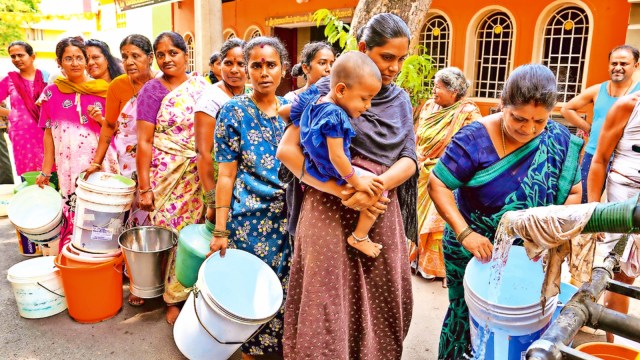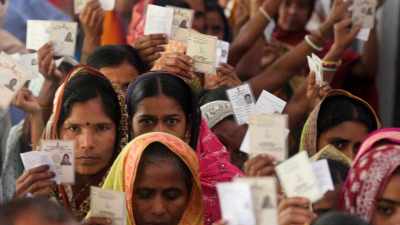‘No rainwater harvesting systems’: DJB withdraws 10% water bill rebate from 119 societies
The move came after the board, during its survey and sampling drive, found widespread violations and groundwater contamination in these societies, owing to faulty and neglected rainwater harvesting (RWH) pits.
 The DPCC, in a letter to the DJB in March, confirmed that its own water lab analysis found contamination in several RWH pits, indicating improper sewage discharge and design flaws. It urged the DJB to act against the defaulting societies.
The DPCC, in a letter to the DJB in March, confirmed that its own water lab analysis found contamination in several RWH pits, indicating improper sewage discharge and design flaws. It urged the DJB to act against the defaulting societies.
The Delhi Jal Board (DJB) informed the National Green Tribunal (NGT) on Wednesday that it has withdrawn the 10% rebate on water bills that 119 cooperative group housing societies in the Capital were to receive, as they do not have functioning rainwater harvesting systems.
The DJB said that it had formally withdrawn the rebate benefit from the housing societies in March. The move came after the board, during its survey and sampling drive, found widespread violations and groundwater contamination in these societies, owing to faulty and neglected rainwater harvesting (RWH) pits.
In January, DJB had submitted a list of 176 societies in Dwarka whose RWH systems were inspected to the Delhi Pollution Control Committee (DPCC). Among these, faecal coliform was detected in 115 societies’ pits, and in four others, the RWH systems were found to be non-functional.
The DJB had written to the DPCC, recommending environmental compensation against the defaulting societies, citing violations under the Environment (Protection) Act, 1986. “In most of the cases, the contamination is due to non-cleaning of the roof, improper maintenance of RWH structure and connection of surface drains in RWH structures,” DJB had stated in its letter.
On March 24, when the DJB formally withdrew the 10% rebate benefit for 119 societies, water disconnection notices were also issued to defaulters. Of these, 55 societies submitted their replies to the board. DJB’s subsequent analysis found faecal contamination in 19 of the 55 societies, dry pits in nine, and rectification work underway in five. Two societies lacked any RWH systems, while 12 requested more time or financial help to comply.
The DPCC, in a letter to the DJB in March, confirmed that its own water lab analysis found contamination in several RWH pits, indicating improper sewage discharge and design flaws. It urged the DJB to act against the defaulting societies.
While DJB has submitted an action taken report, the board informed the NGT that a final action report from the DPCC is still awaited. In 2019, the DJB had made RWHs mandatory in all properties above 100 sq m. It offers an additional 5% rebate for societies with functional wastewater recycling systems.












